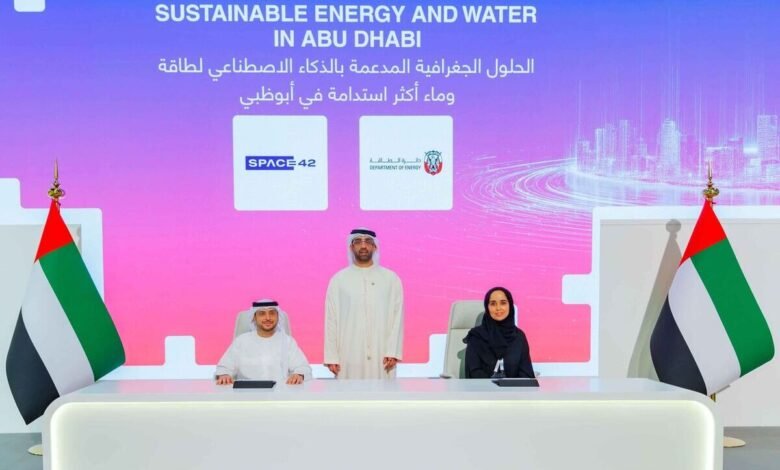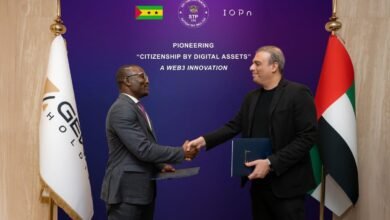Abu Dhabi Uses AI and Satellites to Boost Resource Management

▼ Summary
– The Abu Dhabi Department of Energy and Space42 signed an MoU to collaborate on geospatial and AI solutions for sustainable energy and water management.
– The partnership aims to enhance infrastructure resilience, operational efficiency, and environmental sustainability in Abu Dhabi.
– Space42 will provide satellite imagery and geospatial AI solutions for infrastructure monitoring, predictive analysis, and data-driven decision-making.
– Collaborative efforts will include AI-driven simulations for flood resilience and IoT/AI integration to process real-time data from remote sites.
– The agreement seeks to foster innovation in smart technologies and explore joint initiatives to advance sustainable energy and water management.
A new partnership in Abu Dhabi is set to transform how energy and water resources are managed across the emirate, using artificial intelligence and satellite technology to drive smarter, more sustainable urban systems. The Abu Dhabi Department of Energy (DoE) and Space42, a UAE-based AI and space technology firm, have signed a Memorandum of Understanding to jointly develop and implement advanced geospatial and AI solutions. This collaboration aims to strengthen the resilience of critical infrastructure, improve operational performance, and support long-term environmental goals.
The agreement was formalized during a signing ceremony attended by Dr. Abdulla Humaid Al Jarwan, Chairman of the Abu Dhabi Department of Energy. Eng. Shaima Abdulla Al Mulla, Executive Director of Licensing, Compliance and Consumer Protection at the DoE, and Hasan Al Hosani, CEO of Smart Solutions at Space42, signed the document on behalf of their respective organizations.
Under the terms of the MoU, the two entities will work together to explore, develop, and deploy cutting-edge geospatial and AI-driven technologies. Space42 will provide satellite imagery as a managed service, supplying high-resolution optical, radar, and thermal data to enhance infrastructure monitoring and urban planning. The company will also deliver geospatial AI solutions that enable predictive analysis and data-driven decision-making across multiple sectors.
Additional collaborative projects will include integrated monitoring systems for electricity, water, and district cooling networks using satellite-based insights. AI-driven simulations will be developed for rainwater catchment and flood resilience planning, while Internet of Things (IoT) and AI applications will process real-time data from the DoE’s remote sites and assets. These efforts are expected to deliver timely information on soil moisture levels, improving water management accuracy and supporting resource optimization throughout the emirate.
Both parties will also explore joint initiatives, pilot projects, and specialized studies aimed at advancing sustainable energy and water management. The partnership is designed to encourage innovation and promote best practices in deploying digital, smart, and native AI technologies for monitoring infrastructure and managing vital resources.
Eng. Shaima Al Mulla emphasized that the partnership reflects the DoE’s commitment to adopting advanced technologies that support Abu Dhabi’s sustainable development goals. She noted that integrating AI, satellite imagery, and geospatial data will help create smart solutions for more efficient resource management, enhanced energy and water efficiency, and improved infrastructure development.
Hasan Al Hosani added that collaborating with the Department of Energy unlocks the potential of space-based data and AI to build smarter, more sustainable urban systems. He described the MoU as a milestone in using space-derived insights to increase situational awareness and operational efficiency across Abu Dhabi’s energy and water networks, ultimately supporting resilience and innovation in the emirate.
(Source: Economy Middle East)





